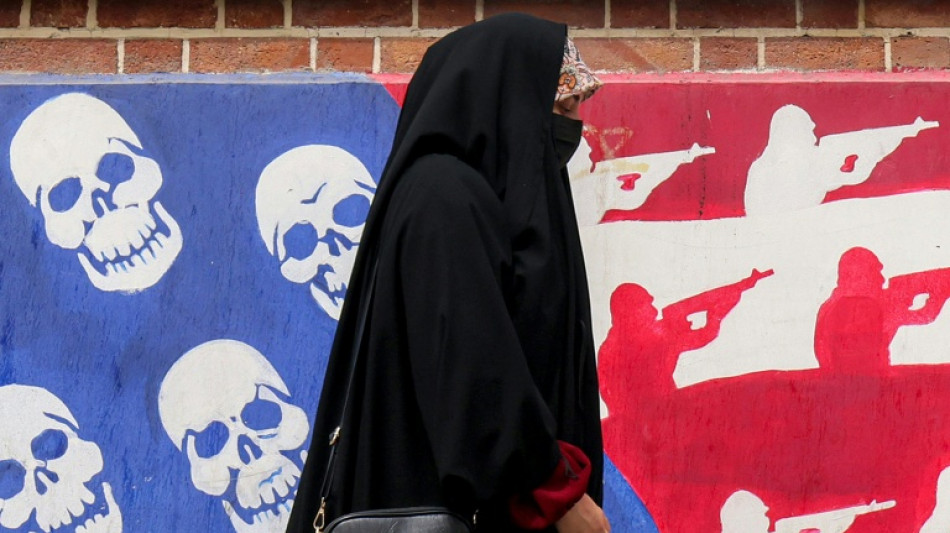
-
 Trump touts trade talks, China calls out tariff 'blackmail'
Trump touts trade talks, China calls out tariff 'blackmail'
-
US judge says 'probable cause' to hold govt in contempt over deportations

-
 US eliminates unit countering foreign disinformation
US eliminates unit countering foreign disinformation
-
Germany sees 'worrying' record dry spell in early 2025

-
 Israel says 30 percent of Gaza turned into buffer zone
Israel says 30 percent of Gaza turned into buffer zone
-
TikTok tests letting users add informative 'Footnotes'

-
 Global uncertainty will 'certainly' hit growth: World Bank president
Global uncertainty will 'certainly' hit growth: World Bank president
-
EU lists seven 'safe' countries of origin, tightening asylum rules

-
 Chelsea fans must 'trust' the process despite blip, says Maresca
Chelsea fans must 'trust' the process despite blip, says Maresca
-
Rebel rival government in Sudan 'not the answer': UK

-
 Prague zoo breeds near-extinct Brazilian mergansers
Prague zoo breeds near-extinct Brazilian mergansers
-
Macron to meet Rubio, Witkoff amid transatlantic tensions

-
 WTO chief says 'very concerned' as tariffs cut into global trade
WTO chief says 'very concerned' as tariffs cut into global trade
-
Sports bodies have 'no excuses' on trans rules after court ruling: campaigners

-
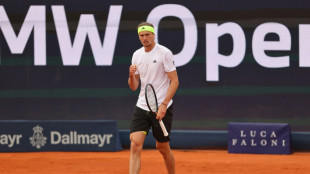 Zverev joins Shelton in Munich ATP quarters
Zverev joins Shelton in Munich ATP quarters
-
The Trump adviser who wants to rewrite the global financial system
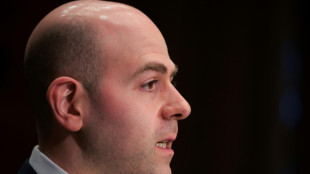
-
 US senator travels to El Salvador over wrongly deported migrant
US senator travels to El Salvador over wrongly deported migrant
-
UN watchdog chief says Iran 'not far' from nuclear bomb

-
 Trump says 'joke' Harvard should be stripped of funds
Trump says 'joke' Harvard should be stripped of funds
-
Macron vows punishment for French prison attackers
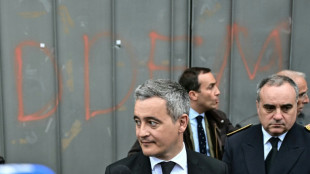
-
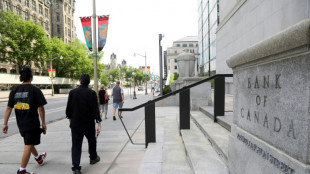 Canada central bank holds interest rate steady amid tariffs chaos
Canada central bank holds interest rate steady amid tariffs chaos
-
Rubio headed to Paris for Ukraine war talks
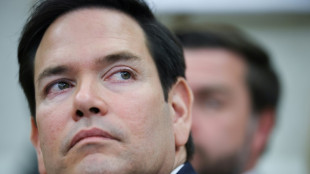
-
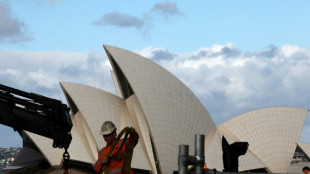 Australian PM vows not to bow to Trump on national interest
Australian PM vows not to bow to Trump on national interest
-
New attacks target France prison guard cars, home
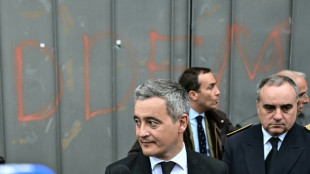
-
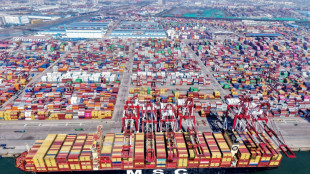 Global trade uncertainty could have 'severe negative consequences': WTO chief
Global trade uncertainty could have 'severe negative consequences': WTO chief
-
Google facing £5 bn UK lawsuit over ad searches: firms
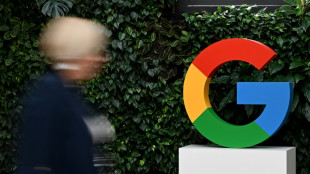
-
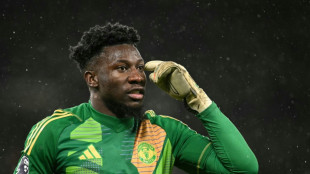 Onana to return in goal for Man Utd against Lyon: Amorim
Onana to return in goal for Man Utd against Lyon: Amorim
-
Tiktok bans user behind Gisele Pelicot 'starter kit' meme
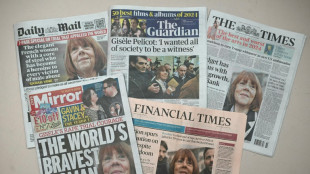
-
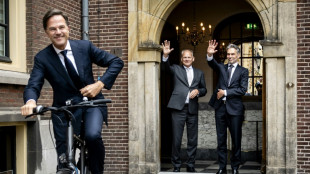 'Put it on': Dutch drive for bike helmets
'Put it on': Dutch drive for bike helmets
-
China's Xi meets Malaysian leaders, vows to 'safeguard' Asia allies
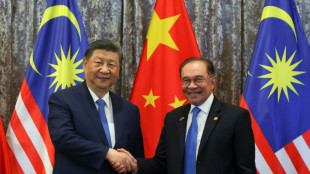
-
 France urges release of jailed Russian journalists who covered Navalny
France urges release of jailed Russian journalists who covered Navalny
-
Gabon striker Boupendza dies after 11th floor fall
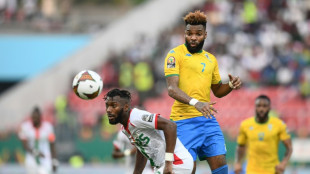
-
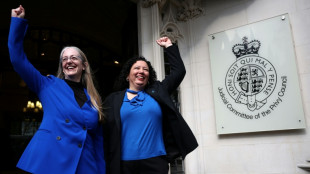 UK top court rules definition of 'woman' based on sex at birth
UK top court rules definition of 'woman' based on sex at birth
-
PSG keep Champions League bid alive, despite old ghosts reappearing
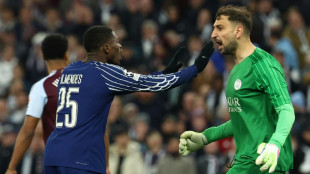
-
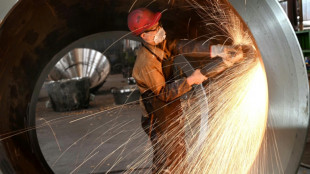 Stocks retreat as US hits Nvidia chip export to China
Stocks retreat as US hits Nvidia chip export to China
-
China's Xi meets Malaysian leaders in diplomatic charm offensive
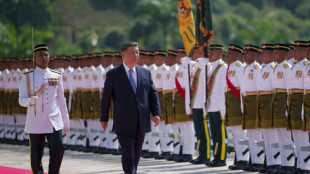
-
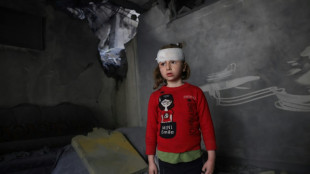 Israel says no humanitarian aid will enter Gaza
Israel says no humanitarian aid will enter Gaza
-
Anxiety clouds Easter for West Bank Christians
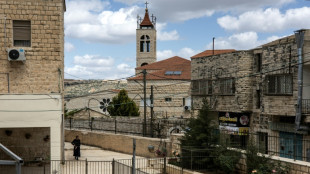
-
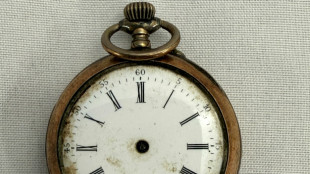 Pocket watch found on Titanic victim to go on sale in UK
Pocket watch found on Titanic victim to go on sale in UK
-
UK top court rules definition of 'a woman' based on sex at birth
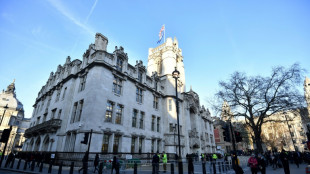
-
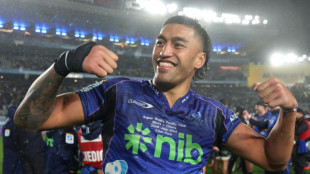 All Black Ioane to join Leinster on six-month 'sabbatical'
All Black Ioane to join Leinster on six-month 'sabbatical'
-
Barca suffer morale blow in Dortmund amid quadruple hunt

-
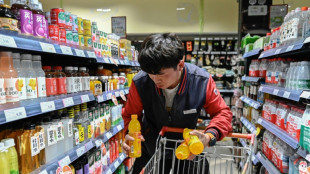 China tells Trump to 'stop threatening and blackmailing'
China tells Trump to 'stop threatening and blackmailing'
-
Iran FM says uranium enrichment 'non-negotiable' after Trump envoy urged halt
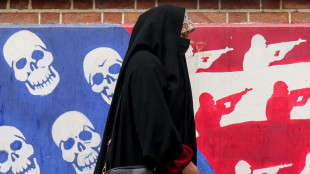
-
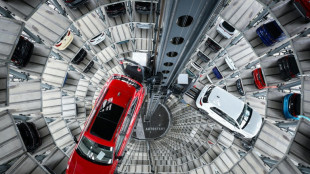 Automakers hold their breath on Trump's erratic US tariffs
Automakers hold their breath on Trump's erratic US tariffs
-
Cycling fan admits throwing bottle at Van der Poel was 'stupid'

-
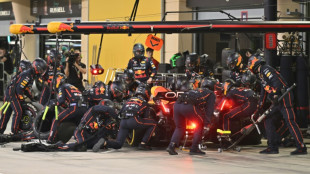 Troubled Red Bull search for path back to fast lane
Troubled Red Bull search for path back to fast lane
-
China's forecast-beating growth belies storm clouds ahead: analysts
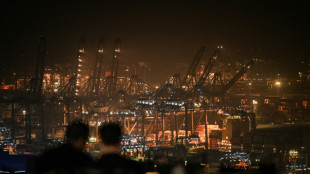
-
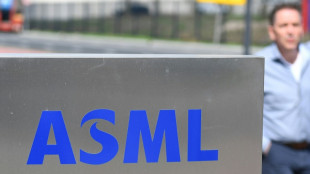 ASML CEO sees growing economic 'uncertainty' from tariffs
ASML CEO sees growing economic 'uncertainty' from tariffs
-
Heineken beer sales dip, tariffs add to uncertainty


Talks with Trump a necessity for sanctions-hit Iran
US President Donald Trump appeared to catch Tehran off guard on Monday when he announced "direct talks" between the arch-foes over Iran's nuclear programme, having previously threatened to bomb the Islamic republic.
Despite previously having expressed major reservations over the talks, Tehran has agreed to participate but through an intermediary.
- What does Iran want? -
The priority for the Islamic republic is the lifting of biting sanctions that have placed a stranglehold on the energy-rich country's economy for decades.
In 2015, a landmark deal was reached between Iran and major powers including the United States, offering sanctions relief in exchange for curbs on Iran's nuclear programme.
The deal, known as the Joint Comprehensive Plan of Action (JPCOA), also provided for the eventual return of Western investments into Iran.
At the time, Iranians were hopeful that the deal would reflect in improvements in their economic conditions and end their country's isolation.
But that hope was short lived as in 2018, during Trump's first term in office, Washington unilaterally pulled out of the deal and reinstated sanctions.
Ever since, the value of the Iranian rial has plummeted against the dollar, fuelling high inflation and unemployment and leaving much of the population impoverished.
"If Iran manages to break the chains of the sanctions, it can achieve a considerable economic resurgence," economist Fayyaz Zahed told AFP.
In addition to some of the highest oil and gas reserves in the world, Iran also enjoys unique geography and has great potential to build its tourism industry and develop infrastructure.
Its 86 million people also represent a large untapped market, a predominantly young and educated urbanised population with an average age of just 32.
- Why talk now? -
Alongside its economic challenges, Iran has been dealt major blows through the weakening of its network of proxies in the region in the aftermath of the Gaza war that began in October 2023.
Lebanese group Hezbollah -- a key bulwark in Iran's so-called axis of resistance against Israel and the United States -- emerged massively weakened from a war last year with Israel, having lost much of its leadership structure.
In Syria, a Sunni Islamist-led offensive toppled Tehran's longtime ally Bashar al-Assad in December, and the Iran-backed Huthi rebels in Yemen have been under heavy US bombardment in recent weeks.
"Iran no longer has any effective cards and is suffering the consequences" of upheavals in the region, Zahed said.
Iran and Israel exchanged direct strikes twice last year for the first time in their history.
- What is Iran's strategy? -
"Iran is prepared to accept the same technical conditions" that were in place for the 2015 deal, Zahed said.
Tehran has long maintained its right to develop its nuclear capabilities for civil purposes, particularly energy.
Western governments however accuse Iran of seeking to develop a weaponss capability, an ambition it vigorously denies.
"On the other hand, the country will show no flexibility regarding its missiles," Zahed warned.
The Trump administration argued that its withdrawal from the JPCOA in 2018 was motivated by the absence of controls for Iran's ballistic missile programme, viewed as a threat by Washington and its ally Israel.
In February, supreme leader Ayatollah Ali Khamenei vowed there would be "no negotiations" with the Trump administration, pointing to previous deals with US leaders that were not honoured.
In March, Trump sent a letter to the Iranian leader, calling for talks but also threatening to bomb Iran in the event that diplomacy failed.
Iran responded that it would not negotiate under pressure.
Trump's announcement that "direct" talks would take place in Oman on Saturday appeared to take Iran by surprise.
Foreign Minister Abbas Araghchi only confirmed the talks in a post on X in the middle of the night, however insisting that Iran would not speak directly with the Americans.
According to US news website Axios, Trump has given Iran two months to reach a deal.
Trump "broke the nuclear deal once", wrote reformist Hossein Nouraninejad in the government daily Iran, adding that "there are many historical differences between the two countries", which have not had diplomatic relations since 1980.
However, direct talks between Trump and Khamenei seem "more likely than war", wrote Ali Shakourirad, a politician close to Iranian President Masoud Pezeshkian, in the newspaper Etemad.
C.Bruderer--VB

